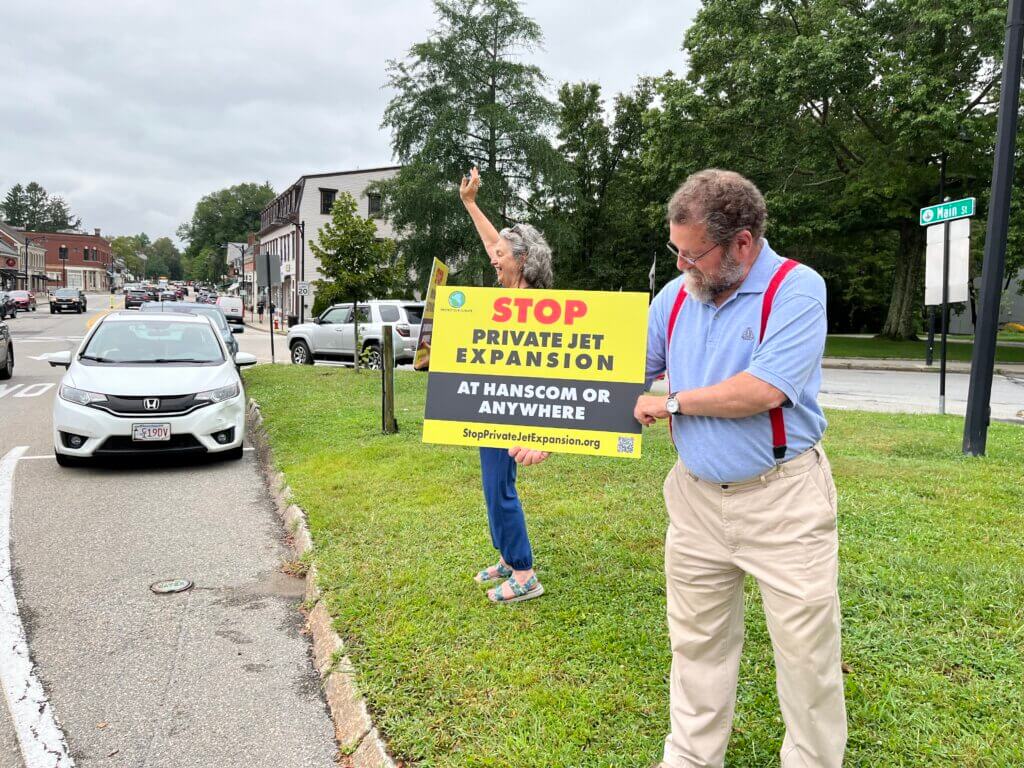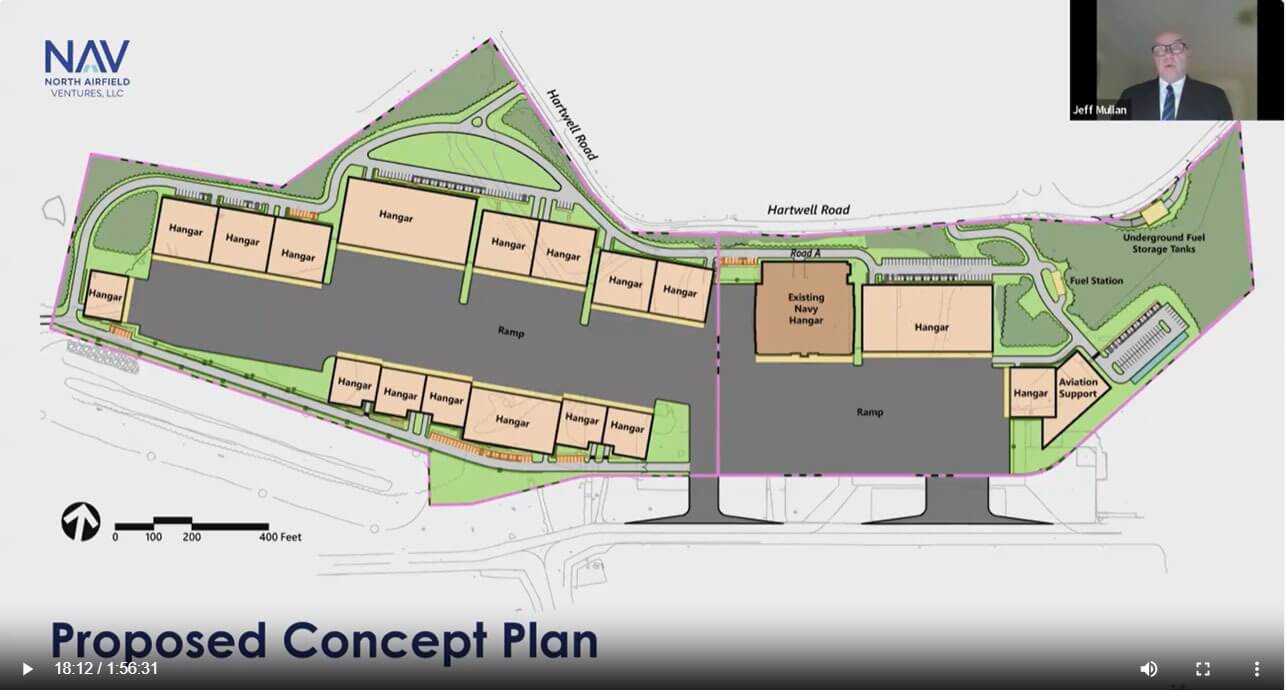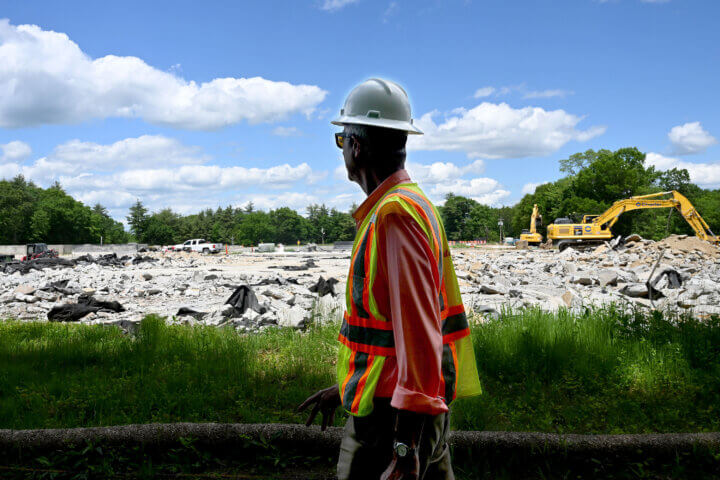By Anne O’Connor — Anne@theconcordbridge.org
As part of the approval process paving the way for a significant expansion at Hanscom Field, proponents of the project held a meeting outlining the plan and possible impacts on the environment.
North Airfield Ventures is looking to add 17 hangars and more fuel storage on roughly 50 acres near Hartwell Road in Bedford.
Consultants, the director of Hanscom Field and a representative of the developer, North Airfield Ventures, presented their analysis to the Hanscom Field Advisory Commission on Zoom on February 20.
The amended plan calls for fewer hangars than initially planned, but the total square building footage remains the same.
Proponents of the proposed plan faced questioning after a presentation to a local committee made as part of the Draft Environmental Impact Report preparation.
Fewer ferry flights?
Building the hangar space, proponents claim, will result in fewer ferry flights to and from the airport, as more planes can be stored onsite.
The developers defined a ferry flight as a short-term flight within 350 miles, made in an aircraft that was on the ground for up to 18 hours and is not a Hanscom Field tenant. Business jets comprised 71% of these flights, and the other 29% were turboprop airplanes, not single-engine craft.
They found approximately 3,000 such flights a year, about 3% of the traffic at Hanscom. Because the data did not include passenger manifests, some of these flights may not be ferry flights but passenger flights, said Sharon Williams, director of Hanscom Field, in reply to a question.
“People have looked for these flights, and we just can’t find them,” said Hanscom Field Advisory Commission Chair Christopher Eliot after the meeting. Actual ferry flights could be less than 1% of the total flights, in his opinion.
In his eight years on HFAC, he never heard of ferry flights before the North Airfield Expansion came to light.

Another concern is the emissions generated by jet and turboprop flights.
According to the presentation, the project addresses existing needs and will not cause increased traffic. However, the plan calls for an added 80,000 gallons of fuel storage, refilled by one or two 10,000-gallon tanker trucks daily.
If Hanscom traffic is not predicted to increase due to the planned expansion, Eliot asked during an interview, why will an average of 15,000 more gallons of fuel be needed each day?
Another effect on airport neighbors is particulate matter in the air, something not fully addressed in the leadup to the DEIR, which addresses particulates 2.5 microns and larger.
The analysis is “consistent with the methodology presented in the Massport Environmental Status and Planning Reports for Hanscom,” said Lauren DeVoe, a presenter during the meeting. She works for the engineering firm VHB in environmental permitting.
The Massachusetts Port Authority oversees Hanscom Field.
Tiny particles, big concerns
Ultrafine particles, smaller than that threshold, are concerning, Eliot said after the presentation. He said recent research has shown how incredibly dangerous the tiny particles are.
They get right past the body’s defenses and deep into the lungs. The “evil Goldilocks size” of the particles means they are too big to be filtered by the kidneys and small enough to get into the bloodstream and perhaps even the brain, he said.
HFAC commissioned a study on ultrafine particulates from Neelakshi Hudda of Lexington, a Tufts University School of Engineering professor, who has done similar studies around Logan International Airport and Los Angeles International Airport.
The study’s first phase, with a price tag of $25,000, was funded equally by Concord, Bedford, Lincoln and Lexington, the four member towns of HFAC.
Eliot signed off on the contract for phase one in February.





